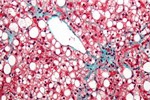 LUDOVIC ORLANDOA 700,000-year-old horse bone has yielded the oldest full genome sequence by more than half a million years. (Previously, an 80,000-year-old hominid held the title of oldest genome sequenced.) “Until this study, many experts would have thought that it was impossible to recover a genome from a sample of this age because of the rapid degradation of DNA into ever shorter fragments that occurs following the death of an organism,” David Lambert of Griffith University in Australia and Craig Millar of the University of Auckland, Zealand, wrote in an accompanying Nature commentary.
LUDOVIC ORLANDOA 700,000-year-old horse bone has yielded the oldest full genome sequence by more than half a million years. (Previously, an 80,000-year-old hominid held the title of oldest genome sequenced.) “Until this study, many experts would have thought that it was impossible to recover a genome from a sample of this age because of the rapid degradation of DNA into ever shorter fragments that occurs following the death of an organism,” David Lambert of Griffith University in Australia and Craig Millar of the University of Auckland, Zealand, wrote in an accompanying Nature commentary.
Now researchers are faced with “the tantalizing proposition that complete genomes several millions of years old may be recoverable, given the right environmental conditions.” Of course, the right environmental conditions are key: the horse bone that yielded the DNA for sequencing was preserved in the extreme cold of Yukon permafrost in northern Canada. Even still, the DNA was of fairly poor quality, and the researchers used both the second-generation Illumina machine and the third-generation Helicos platform to complete the sequencing.
 WIKIMEDIA, NEPHRONIn addition to being linked to diabetes and cardiovascular disease, obesity, which has increased dramatically in developed nations in recent decades, has also been associated with a higher risk of cancer. Now, a new study in mice suggests a possible mechanism for this association: changes in the gut microbiome that accompany obesity lead to the production of metabolites that, in turn, initiate inflammatory and tumor-promoting factors.
WIKIMEDIA, NEPHRONIn addition to being linked to diabetes and cardiovascular disease, obesity, which has increased dramatically in developed nations in recent decades, has also been associated with a higher risk of cancer. Now, a new study in mice suggests a possible mechanism for this association: changes in the gut microbiome that accompany obesity lead to the production of metabolites that, in turn, initiate inflammatory and tumor-promoting factors.
Obese mice fed a high-fat diet and exposed to a chemical carcinogen developed liver cancer and also displayed evidence of ...


















